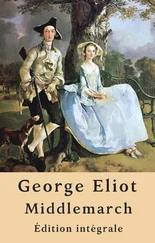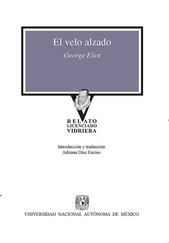George Eliot - Felix Holt, the Radical
Здесь есть возможность читать онлайн «George Eliot - Felix Holt, the Radical» — ознакомительный отрывок электронной книги совершенно бесплатно, а после прочтения отрывка купить полную версию. В некоторых случаях можно слушать аудио, скачать через торрент в формате fb2 и присутствует краткое содержание. Жанр: foreign_antique, foreign_prose, на английском языке. Описание произведения, (предисловие) а так же отзывы посетителей доступны на портале библиотеки ЛибКат.
- Название:Felix Holt, the Radical
- Автор:
- Жанр:
- Год:неизвестен
- ISBN:нет данных
- Рейтинг книги:3 / 5. Голосов: 1
-
Избранное:Добавить в избранное
- Отзывы:
-
Ваша оценка:
- 60
- 1
- 2
- 3
- 4
- 5
Felix Holt, the Radical: краткое содержание, описание и аннотация
Предлагаем к чтению аннотацию, описание, краткое содержание или предисловие (зависит от того, что написал сам автор книги «Felix Holt, the Radical»). Если вы не нашли необходимую информацию о книге — напишите в комментариях, мы постараемся отыскать её.
Felix Holt, the Radical — читать онлайн ознакомительный отрывок
Ниже представлен текст книги, разбитый по страницам. Система сохранения места последней прочитанной страницы, позволяет с удобством читать онлайн бесплатно книгу «Felix Holt, the Radical», без необходимости каждый раз заново искать на чём Вы остановились. Поставьте закладку, и сможете в любой момент перейти на страницу, на которой закончили чтение.
Интервал:
Закладка:
As for little Mr. Lyon, he loved and admired this unregenerate child more, he feared, than was consistent with the due preponderance of impersonal and ministerial regards: he prayed and pleaded for her with tears, humbling himself for her spiritual deficiencies in the privacy of his study; and then came down stairs to find himself in timorous subjection to her wishes, lest, as he inwardly said, he should give his teaching an ill savor, by mingling it with outward crossing. There will be queens in spite of Salic or other laws of later date than Adam and Eve; and here in this small dingy house of the minister in Malthouse Yard, there was a light-footed, sweet-voiced Queen Esther.
The stronger will always rule, say some, with an air of confidence which is like a lawyer's flourish, forbidding exceptions or additions. But what is strength? Is it blind wilfulness that sees no terrors, no many-linked consequences, no bruises and wounds of those whose cords it tightens? Is it the narrowness of a brain that conceives no needs differing from its own, and looks to no results beyond the bargains of to-day; that tugs with emphasis for every small purpose, and thinks it weakness to exercise the sublime power of resolved renunciation? There is a sort of subjection which is the peculiar heritage of largeness and of love; and strength is often only another name for willing bondage to irremediable weakness.
Esther had affection for her father: she recognized the purity of his character, and a quickness of intellect in him which responded to her own liveliness, in spite of what seemed a dreary piety, which selected everything that was least interesting and romantic in life and history. But his old clothes had a smoky odor, and she did not like to walk with him, because, when people spoke to him in the street, it was his wont, instead of remarking on the weather and passing on, to pour forth in an absent manner some reflections that were occupying his mind about the traces of the Divine government, or about a peculiar incident narrated in the life of the eminent Mr. Richard Baxter. Esther had a horror of appearing ridiculous even in the eyes of vulgar Trebians. She fancied that she should have loved her mother better than she was able to love her father; and she wished she could have remembered that mother more thoroughly.
But she had no more than a broken vision of the time before she was five years old – the time when the word oftenest on her lips was "Mamma"; when a low voice spoke caressing French words to her, and she in her turn repeated the words to her rag doll; when a very small white hand, different from any that came after, used to pat her, and stroke her, and tie on her frock and pinafore, and when at last there was nothing but sitting with a doll on a bed where mamma was lying, till her father once carried her away. Where distinct memory began, there was no longer the low caressing voice and the small white hand. She knew that her mother was a Frenchwoman, that she had been in want and distress, and that her maiden name was Annette Ledru. Her father had told her no more than this; and once, he had said, "My Esther, until you are a woman, we will only think of your mother: when you are about to be married and leave me, we will speak of her, and I will deliver to you her ring and all that was hers; but, without a great command laid upon me, I cannot pierce my heart by speaking of that which was and is not." Esther had never forgotten these words, and the older she became, the more impossible she felt it that she should urge her father with questions about the past.
His inability to speak of that past to her depended on manifold causes. Partly it came from an initial concealment. He had not the courage to tell Esther that he was not really her father: he had not the courage to renounce that hold on her tenderness which the belief in his natural fatherhood must help to give him, or to incur any resentment that her quick spirit might feel at having been brought up under a false supposition. But there were other things yet more difficult for him to be quite open about – deep sorrows of his life as a Christian minister that were hardly to be told to a girl.
Twenty-two years ago, when Rufus Lyon was no more than thirty-six years old, he was the admired pastor of a large Independent congregation in one of our southern seaport towns. He was unmarried, and had met all exhortations of friends who represented to him that a bishop, i. e. , the overseer of an Independent church and congregation – should be the husband of one wife, by saying that St. Paul meant this particular as a limitation, and not as an injunction; that a minister was permitted to have one wife, but that he, Rufus Lyon, did not wish to avail himself of that permission, finding his studies and other labors of his vocation all-absorbing, and seeing that mothers in Israel were sufficiently provided by those who had not been set apart for a more special work. His church and congregation were proud of him: he was put forward on platforms, was made a "deputation," and was requested to preach anniversary sermons in far-off towns. Wherever noteworthy preachers were discussed, Rufus Lyon was almost sure to be mentioned as one who did honor to the Independent body; his sermons were said to be full of fire; and while he had more of human knowledge than many of his brethren, he showed in an eminent degree the marks of a true ministerial vocation. But on a sudden this burning and shining light seemed to be quenched: Mr. Lyon voluntarily resigned his charge and withdrew from the town.
A terrible crisis had come upon him; a moment in which religious doubt and newly-awakened passion had rushed together in a common flood, and had paralyzed his ministerial gifts. His thirty-six years had been a story of purely religious and studious fervor; his passion had been for doctrines, for argumentative conquest on the side of right; the sins he had chiefly to pray against had been those of personal ambition (under such forms as ambition takes in the mind of a man who has chosen the career of an Independent preacher), and those of a too restless intellect, ceaselessly urging questions concerning the mystery of that which was assuredly revealed, and thus hindering the due nourishment of the soul on the substance of the truth delivered. Even at that time of comparative youth, his unworldliness and simplicity in small matters (for he was keenly awake to the larger affairs of this world) gave a certain oddity to his manners and appearance; and though his sensitive face had much beauty, his person altogether seemed so irrelevant to a fashionable view of things, that well-dressed ladies and gentlemen usually laughed at him, as they probably did at Mr. John Milton after the Restoration and ribbons had come in, and still more at that apostle, of weak bodily presence, who preached in the back streets of Ephesus and elsewhere, a new view of a religion that hardly anybody believed in. Rufus Lyon was the singular-looking apostle of the Meeting in Skipper's Lane. Was it likely that any romance should befall such a man? Perhaps not; but romance did befall him.
One winter's evening in 1812, Mr. Lyon was returning from a village preaching. He walked at his usual rapid rate, with busy thoughts undisturbed by any sight more distinct than the bushes and the hedgerow trees, black beneath a faint moonlight, until something suggested to him that he had perhaps omitted to bring away with him a thin account-book in which he recorded certain subscriptions. He paused, unfastened his outer coat, and felt in all his pockets, then he took off his hat and looked inside it. The book was not to be found, and he was about to walk on, when he was startled by hearing a low, sweet voice, say, with a strong foreign accent —
"Have pity on me, sir."
Searching with his short-sighted eyes, he perceived some one on a side-bank; and approaching, he found a young woman with a baby on her lap. She spoke again more faintly than before.
Читать дальшеИнтервал:
Закладка:
Похожие книги на «Felix Holt, the Radical»
Представляем Вашему вниманию похожие книги на «Felix Holt, the Radical» списком для выбора. Мы отобрали схожую по названию и смыслу литературу в надежде предоставить читателям больше вариантов отыскать новые, интересные, ещё непрочитанные произведения.
Обсуждение, отзывы о книге «Felix Holt, the Radical» и просто собственные мнения читателей. Оставьте ваши комментарии, напишите, что Вы думаете о произведении, его смысле или главных героях. Укажите что конкретно понравилось, а что нет, и почему Вы так считаете.












